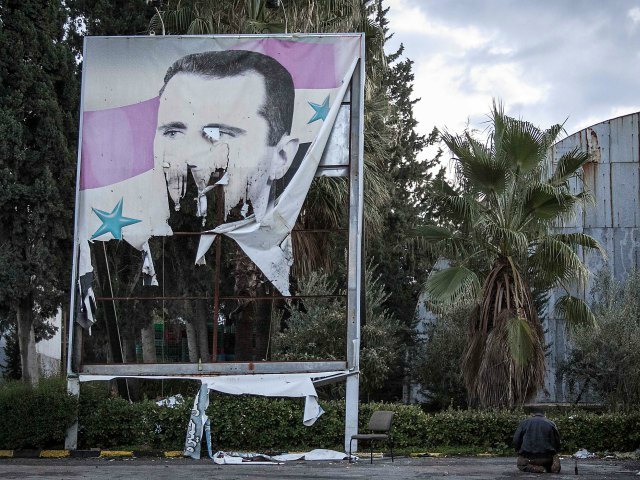
With President Bashar al-Assad’s term coming close to an end, Syria announced today that it will hold presidential elections on June 3, within the 60-90 day window the constitution requires. The announcement raises many logistical concerns involved in staging an election during a civil war, and many expect Assad to easily win reelection.
According to the Associated Press, Parliament Speaker Mohammed Laham announced today that candidates were encouraged to run, and had until May 1 to place their name on the ballot. No candidates, including President Assad, have announced yet, and opposition supporters have already called for a boycott of the election. The immediate boycott call is a reminder that Syria is yet in the middle of a civil war, one that the AP reports has killed at least 150,000 people so far.
The election calls into question whether Syria has the ability to conduct an election logistically. At least ten people were killed in a government bombing of rebel-controlled Aleppo yesterday, and many of the individuals who would be eligible to vote are now refugees, staying in camps to avoid becoming targets of either the rebels or the government, depending on their religion. The AP notes that there is little expectation of absentee voting from refugees, since the operation to keep those individuals safe is so disorganized it would take a herculean effort on the government’s part to find and enfranchise them all.
Another recent concern in the war is the rise of new accusations from both sides that chemical weapons are once again being used. During the initial round of international intervention last year, observers determined that Assad had used chemical weapons against his people. The negotiation, which resulted in an increasingly high profile as peacemaker for Russian president Vladimir Putin, supposedly would disarm the Syrian government of chemical weapons.
New allegations have surfaced, however, of the use of chlorine gas to disarm soldiers and hurt civilians in the war. Videos of individuals apparently being treated for chlorine gas attacks have appeared on the internet, though both the government and the rebels claim that the other side launched the attack. Senior Israeli defense officials this week announced that they had evidence that the Syrian government launched a chemical weapons attack in the capital, Damascus, nearly two weeks ago. The French government added this week that they, too, had “information” that Assad was using chemical weapons.
Assad, meanwhile, has not announced an official candidacy, but appears to be in full campaign mode. Assad used the Easter holiday to visit Christian towns in Syria that had been recently recaptured from the mostly Muslim rebels, taking photos with locals and declaring that “nobody, regardless of the extent of their terror, can erase our cultural and human history,” in a vow to protect Syrian Christians. To some in these communities, Assad’s admitted human rights violations would be preferential to extremist Islamic groups taking over Christian villages and attempting to impose Sharia Law.
Whether Assad will have a carefully planned out campaign strategy is a secondary concern, however, in a country ravaged by civil war in which few believe a serious, fair election could be held. The election, opponents allege, will serve only to mask the state oppression that caused the war in the first place, not to give a voice to a people diminished greatly by death and exile.

COMMENTS
Please let us know if you're having issues with commenting.